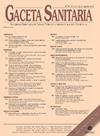Immigration status and depression in Spain: analysis of the European Health Interview Surveys of 2014 and 2020
IF 1.5
4区 医学
Q3 HEALTH CARE SCIENCES & SERVICES
引用次数: 0
Abstract
Objective
We examined the association between immigration status and depression in a nationally representative sample of adults in Spain. In addition, we assessed whether this association differed by sex/gender and social support.
Method
We used de-identified data from the European Health Interview Survey conducted in Spain in 2014 (n = 21,226) and 2020 (n = 20,136). Our study outcomes were self-reported diagnosis of depression and antidepressant use. We fitted Poisson regression models to quantify the association between immigration status and each outcome, before and after adjusting for age, sex/gender, marital status, educational level, employment status, smoking status, healthcare use, social support, and self-rated health. We obtained prevalence ratios (PR) and 95% confidence intervals (95%CI). We also tested interaction terms to evaluate whether the associations of interest differed by survey year and further by sex/gender and with social support.
Results
In 2014 and 2020, we observed a lower prevalence of depression among immigrant adults than among native Spanish adults (adjusted PR2014 = 0.53, 95%CI: 0.40- 0.70; PR2020 = 0.71, 95%CI: 0.55-0.91). However, for antidepressant use, this association was significant only in 2014 (adjusted PR2014 = 0.36, 95%CI: 0.24-0.55). Although the association of immigration status with antidepressant use differed with survey year, these associations did not change with sex/gender or social support.
Conclusions
Our findings call attention to depression and mental health-related outcomes in Spain, regardless of immigration status, sex/gender or social support.
Objetivo
Examinamos la asociación entre el estado migratorio y la depresión en una muestra representativa de ámbito nacional de adultos en España. Además, evaluamos si esta asociación difiere según el sexo/género y el apoyo social.
Método
Utilizamos datos anonimizados de la Encuesta Europea de Salud realizada en España en 2014 (n = 21.226) y en 2020 (n = 20.136). Los resultados de nuestro estudio fueron el diagnóstico autoinformado de depresión y el uso de antidepresivos. Usamos modelos de regresión de Poisson para cuantificar la asociación entre el estado migratorio y cada resultado, antes y después de ajustar por edad, sexo/género, estado civil, nivel educativo, situación laboral, tabaquismo, uso de atención médica, apoyo social y salud autopercibida. Obtuvimos razones de prevalencia (RP) e intervalos de confianza del 95% (IC95%). También examinamos términos de interacción para evaluar si las asociaciones de interés diferían según el año de la encuesta, y además según el sexo/género y el apoyo social.
Resultados
En 2014 y 2020 observamos una menor prevalencia de depresión en los inmigrantes que en los adultos nacidos en España (RP2014 ajustada = 0,53, IC95%: 0,40-0,70; RP2020 = 0,71, IC95%: 0,55-0,91). Sin embargo, para el uso de antidepresivos esta asociación solo fue significativa en 2014 (RP2014 ajustada = 0,36, IC95%: 0,24-0,55). Aunque la asociación del estado migratorio con el uso de antidepresivos difiere según el año de la encuesta, estas asociaciones no cambiaron con el sexo/género o el apoyo social.
Conclusiones
Nuestros hallazgos llaman la atención sobre la depresión y las consecuencias relacionadas con la salud mental en España, independientemente del estado migratorio, el sexo/género y el apoyo social.
西班牙移民状况与抑郁症:2014年和2020年欧洲健康访谈调查分析
目的:我们在西班牙一个具有全国代表性的成年人样本中研究了移民身份与抑郁症之间的关系。此外,我们评估了这种关联是否因性别和社会支持而不同。方法:我们使用2014年(n=21,226)和2020年(n=20,136)在西班牙进行的欧洲健康访谈调查的去识别数据。我们的研究结果是自我报告的抑郁症诊断和抗抑郁药的使用。我们拟合泊松回归模型,在调整年龄、性别/性别、婚姻状况、教育水平、就业状况、吸烟状况、医疗保健使用、社会支持和自评健康状况之前和之后,量化移民状况与每个结果之间的关系。我们得到了患病率(PR)和95%置信区间(95% ci)。我们还测试了相互作用项,以评估兴趣关联是否因调查年份而异,并进一步因性别/性别和社会支持而异。结果:在2014年和2020年,我们观察到移民成年人的抑郁症患病率低于西班牙本土成年人(调整后的PR2014=0.53, 95%CI: 0.40- 0.70;Pr2020 =0.71, 95%ci: 0.55-0.91)。然而,对于抗抑郁药的使用,这种关联仅在2014年具有显著性(调整后的PR2014=0.36, 95%CI: 0.24-0.55)。尽管移民身份与抗抑郁药使用的关联随着调查年份的不同而不同,但这些关联不随性别或社会支持而改变。结论:我们的研究结果呼吁关注西班牙的抑郁症和心理健康相关结果,无论移民身份、性别/性别或社会支持如何。
本文章由计算机程序翻译,如有差异,请以英文原文为准。
求助全文
约1分钟内获得全文
求助全文
来源期刊

Gaceta Sanitaria
医学-公共卫生、环境卫生与职业卫生
CiteScore
4.10
自引率
5.30%
发文量
80
审稿时长
29 days
期刊介绍:
Gaceta Sanitaria (Health Gazette) is an international journal that accepts articles in Spanish and in English. It is the official scientific journal of the Sociedad Española de Salud Publica y Administración Sanitaria (Spanish Society of Public Health and Health Administration) (SESPAS).
The Journal publishes 6 issues per year on different areas of Public Health and Health Administration, including:
-Applied epidemiology-
Health prevention and promotion-
Environmental health-
International health-
Management and assessment of policies and services-
Health technology assessments-
Health economics.
The editorial process is regulated by a peer review system. It publishes original works, reviews, opinion articles, field and methodology notes, protocols, letters to the editor, editorials, and debates.
 求助内容:
求助内容: 应助结果提醒方式:
应助结果提醒方式:


